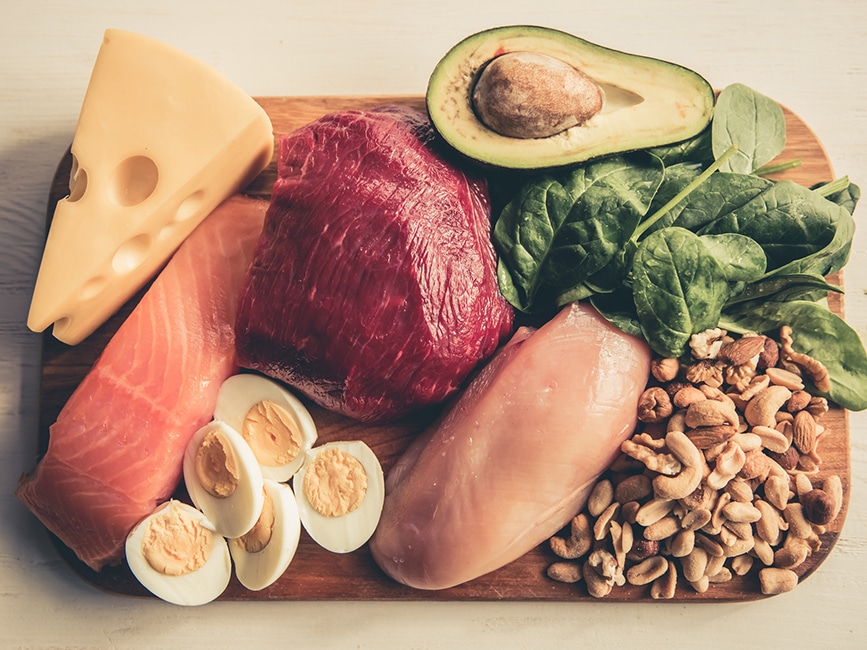hedge against dementia with this research trifecta
Three studies presented in July at the Alzheimer’s Association International Conference in Honolulu point toward exercise, tea consumption and vitamin D as promising measures to keep dementia at bay.
Exercise. The first study, derived from data collected in the Framingham Heart Study, found that those who engaged in moderate to heavy levels of physical activity had a lower risk of developing any type of dementia. (The Framingham study is a long-term, population-based trial that began in 1948.)
Zaldy Tan, MD, MPH, of Brigham and Women’s Hospital and Harvard Medical School, and colleagues estimated the 24-hour physical activity levels of more than 1,200 elderly adults (742 female) in the Framingham Study during the trial’s 20th examination cycle (1986–1987, when subjects were aged 76 ± 5 years) and followed them for two decades. In that time, 242 developed dementia.
Researchers found that participants who performed moderate to heavy levels of physical activity had about a 40% lower risk of developing any type of dementia. Further, people who reported the lowest levels of physical activity were 45% more likely to develop any type of dementia compared with those who reported higher levels of activity. Similar results were seen when analyses were limited to Alzheimer’s alone. Analyses showed that the observed associations were largely evident in men in the study.
Tea Consumption. In the second study, Lenore Arab, PhD, of the University of California, Los Angeles, and colleagues used data on more than 4,800 men and women aged 65 and older from the Cardiovascular Health Study to examine the relationship between tea and coffee consumption and change in cognitive function over time. Study participants were tracked for up to 14 years for naturally occurring cognitive decline using a baseline exam and up to eight follow-up tests.
The researchers found that people who consumed tea at a variety of levels had significantly less cognitive decline (17%–37%) than those who were not tea drinkers. More specifically, study participants who drank tea 5–10 times per year, 1–3 times per month, 1–4 times per week and 5 or more times per week had average annual rates of decline 17%, 32%, 37% and 26% lower, respectively, than those who drank no tea.
Vitamin D. In the third study, David Llewellyn, PhD, of the University of Exeter Peninsula Medical School (UK) and colleagues examined information from 3,325 adults aged 65 years and older from the Third National Health and Nutrition Examination Survey (NHANES III), a study that was carefully designed to accurately represent the U.S. noninstitutionalized population. Vitamin D levels were measured from blood samples and compared with performance on a measure of general cognitive function that incorporated tests of memory, orientation in time and space, and ability to maintain attention.
The researchers classified participants as being cognitively impaired if they scored in the worst 10% of older adults in the study. They found that the odds of cognitive impairment were about 42% higher in those people who were deficient in vitamin D, and 394% higher in people who were severely deficient.
“It appears that the odds of cognitive impairment increase as vitamin D levels go down, which is consistent with the findings of previous European studies,” Llewellyn said in a press release. “Given that both vitamin D deficiency and dementia are common throughout the world, this is a major public health concern.”
Sandy Todd Webster
For 22 years, Sandy Todd Webster was the chief architect of IDEA's content program - including the award-winning IDEA FITNESS JOURNAL and IDEA FOOD & NUTRITION TIPS - the industry's leading resources for fitness, wellness and nutrition professionals worldwide. She created, launched and nurtured these brands and many others during her productive and purposeful IDEA tenure. Sandy is a Rouxbe-certified professional plant-based cook and a Precision Nutrition Level 1 Coach who is pursuing a Master's degree in Sustainable Food Systems through The Culinary Institute of America (expected August 2024). She plans to combine these passions with her content expertise to continue inspiring others to make the world a more just, healthy and regenerative place.






